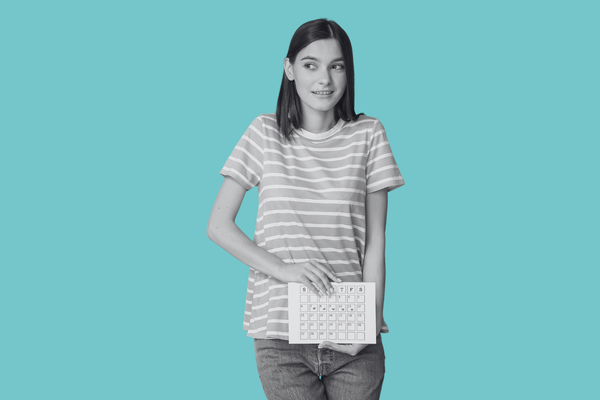
Who can I trust when learning about my period?
Don’t worry, we’ve got the lowdown on how to feel supported while sorting fact from fiction.
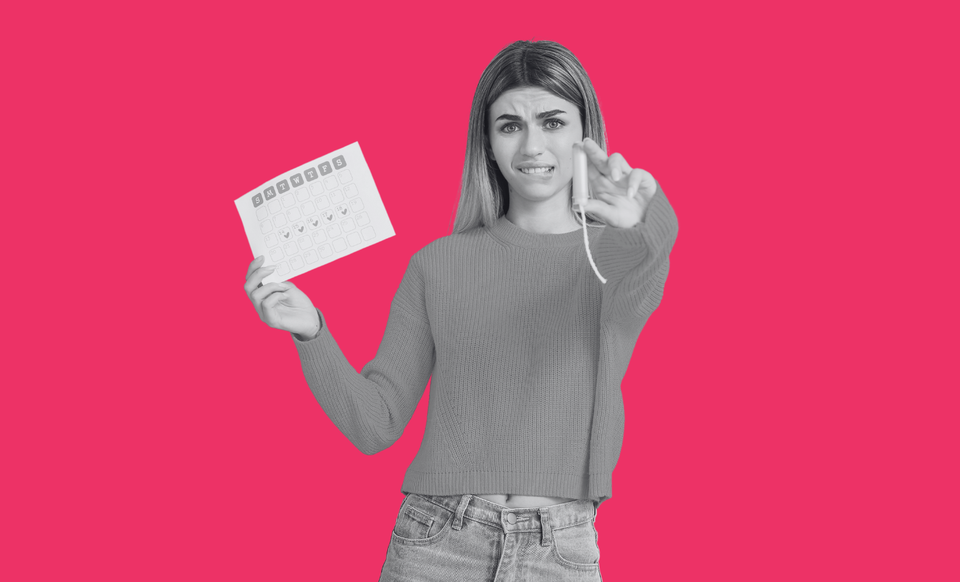
You might be nervous about getting your first period, or you might have had periods for a while but are finding them difficult. You’re not alone. It’s common to feel worried about periods and how to manage them.
But there are also lots of things you can do to make periods easier. With our expert tips and a bit of preparation you’ll soon be managing every month with confidence. If you are still concerned about anything to do with your periods though, see your GP or an adult. It’s important to make sure you’re getting the support you need and deserve, especially if other things are causing you stress. Here’s advice on who you can trust to talk to about your period.
Lots of people chat about periods with their friends and compare notes, though not everyone is comfortable doing so. Talking is good, as sharing your experiences can make you feel less alone. Just remember that no two menstrual cycles (the start of one period to the start of the next) will be the same. This is why it’s helpful to get to know your unique cycle. It will give you more confidence and help you prepare better each month.
You may find it helpful to track and note what you experience throughout your whole menstrual cycle. Include all the ways your period is impacting you, such as:
You can keep notes using a simple period tracker app on your phone, or just write them down in a notebook. Mark the first day of your period as day 1 of your cycle. The last day of your cycle is the day before your next period.
Keeping track will give you a helpful picture of how your periods impact you over the month, so you can find ways to make things easier for yourself. Plus, you’ll also be able to spot if anything is wrong. If you do have to see a doctor about difficult periods, your tracker will be helpful to them too.
There are lots of different period products to choose from. It’s up to you which you use. You may have to try a few out before deciding on which product you like best. It’s worth trying out different brands too, if you can. You might find that you dislike one brand’s tampon, for example, but love another. You may want to start using the same products that people you know like, but don’t be afraid to give others a try.
You could try:
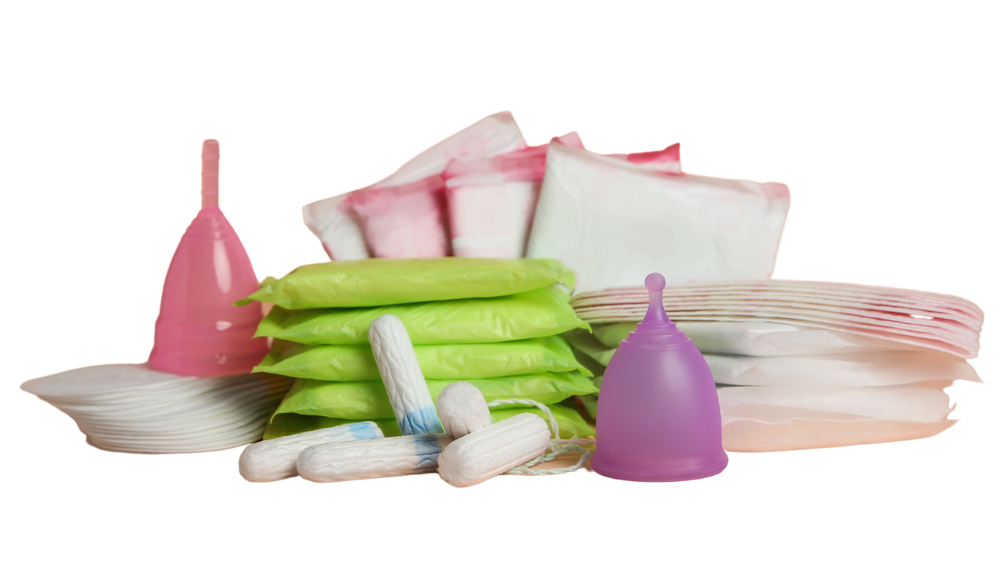
Your school should provide some types of period products free. These are often kept in the girls’ toilets, or central places like the library. If you don’t know where they are kept, don’t be afraid to ask the school nurse or a teacher.
You may also have heard of free bleeding, which is when you do not use period products. Some people do it because they have other ways to manage their period, like period-proof clothing. In fact, period underwear may be seen as free bleeding by some. Others do it to noticeably bleed so that it helps normalise periods.
You might find you have cramps and pain in your stomach just before or during your period. Period cramps or period pain is quite common. The pain is usually mild but in some people it can be severe.
Period cramps are thought to be caused by the muscles in your womb helping to push the period blood out.
There are lots of things you can try to feel better. These include:
If the pain gets so bad that it stops you doing things you normally do, talk to a parent or other adult that you trust. They might be able to help. Or you can make an appointment with your doctor, although you may need to take your parent or carer with you if you’re under 16. The NHS has advice on this. Your doctor will be able to recommend any treatment you might need and check for any problems.
How heavy a period is differs from person to person. Your doctor is not going to ask you to measure how much blood you are losing each month. Some symptoms of heavy periods include:
If you can relate to any of these, make sure you talk to a parent, teacher or other trusted adult. You may need to see a doctor. This is especially true if you have to stop doing things during your period. It’s not normal to have to change your daily life because of your period.
Your doctor may be able to give you medicine and treatments that can help make your periods lighter and help with managing pain. They can also check that your periods are not causing you problems, like extreme tiredness or weakness.
You may also want to make sure you’re using the right product for how heavy your period is. You might need to go from medium to heavy flow tampons, for example.
It can give you peace of mind to keep a change of underwear in your bag and some period product supplies if you can. A jacket, cardigan or sweatshirt can also be great to tie round your waist and cover up any leaks in an emergency.
Your periods can be irregular and unpredictable for up to two years after you start. Generally they will eventually settle down into a routine that you can trust a bit better.
It’s a good idea to have a grab bag with everything you need in case your period comes on when you’re not expecting it.
This could include:
Talk to an adult or your doctor if:
Your doctor will be able to help if there’s a problem and may be able to offer treatment to make your periods more regular.
The way your hormones go up and down during your cycle can really affect how you feel. This is especially true in the lead up to your period. You may feel more emotional, tearful, moody, low or tired.
First of all, know that you’re not alone with this. Emotional changes are quite common. They are part of pre-menstrual syndrome (PMS).
But, while it’s valid to have different emotions, it does not mean you should just have to put up with feeling seriously low or feeling like your emotions are out of control.
Talk to your family and friends about what you’re going through. This may help you get a different view of the things that are making you feel bad.
Make sure you really look after yourself too. Be kind to yourself, try to move your body as exercise can help both physical and mental health symptoms and remember self-care. Have a long, hot bath with candles, relax with your favourite music or binge on your favourite show. Treat yourself to the things you most enjoy doing but remember there is help available if you need it
If things feel unmanageable and you find yourself feeling bad a lot of the time, your doctor may be able to help. Taking care of your mental health is just as important as how you feel physically.
Lastly, ask for support if you need any help at all. It can sometimes feel awkward to talk about periods but people you know will want to help you. Whether you need products or advice on symptoms, or just want to offload to someone, don't be afraid to ask for help or speak to a trusted friend, teacher, school nurse or parent.
Knowing what to expect when it comes to your periods is important, just make sure the information your getting is right. We’ve got the lowdown on how to make sure you have information you can trust.

Don’t worry, we’ve got the lowdown on how to feel supported while sorting fact from fiction.
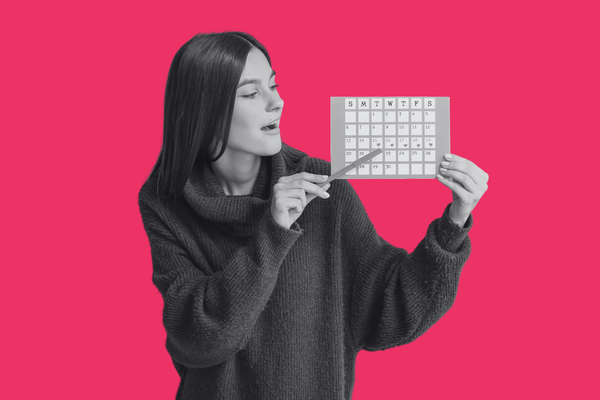
Your menstrual cycle is the time from the first day of one period to the day before your next period.
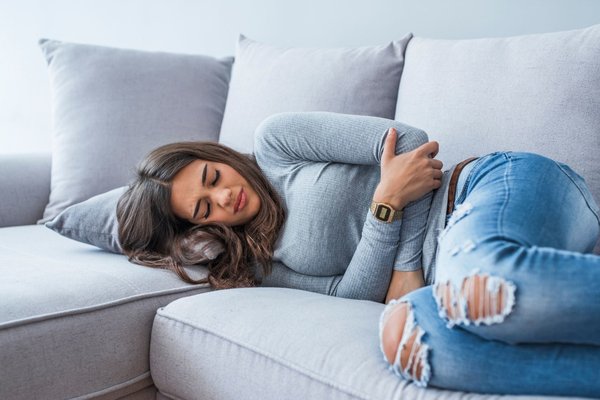
Adenomyosis is when the lining of the womb grows into the muscle wall. It can cause heavy, painful or irregular periods.